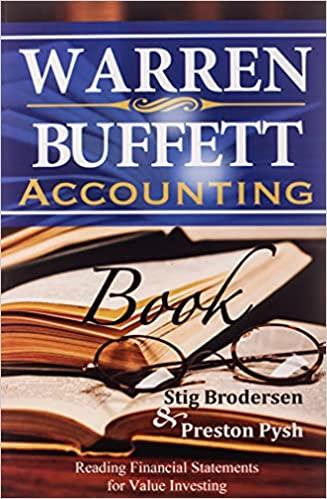Answered step by step
Verified Expert Solution
Question
1 Approved Answer
Case Study: Fair Value Accounting, also known as mark - to - market accounting, is a principle in accounting that involves valuing assets and liabilities
Case Study:
Fair Value Accounting, also known as marktomarket accounting, is a principle in accounting that involves valuing assets and liabilities at their current market prices. This approach provides users of financial statements with more relevant and timely information about an organization's financial position. However, the application of Fair Value Accounting can present several challenges for financial reporting.
Consider a multinational corporation, XYZ Inc., operating in the technology sector. In its financial statements for the fiscal year, XYZ Inc. decides to apply Fair Value Accounting to its investment portfolio, which includes stocks, bonds, and derivatives.
Initially, XYZ Inc. purchased a significant number of shares in a startup tech company. The shares were valued at $ million at the time of purchase. However, due to market volatility and changes in industry trends, the fair value of these shares fluctuated throughout the year. By the end of the fiscal year, the fair value of the shares had decreased to $ million.
Similarly, XYZ Inc. holds bonds issued by various governments and corporations. These bonds were initially recorded at their historical cost. However, as market interest rates changed, the fair value of these bonds fluctuated. While some bonds appreciated in value, others experienced declines. XYZ Inc. had to revalue these bonds at their fair values, resulting in adjustments to its financial statements.
Additionally, XYZ Inc. engages in hedging activities to manage its foreign exchange risk. It holds derivatives contracts, such as forward contracts and options, to mitigate the impact of currency fluctuations on its international operations. These derivatives are recorded at fair value on the balance sheet. However, the valuation of derivatives can be complex and subjective, as it requires estimating future cash flows and market conditions.
Despite the benefits of Fair Value Accounting in providing relevant information to stakeholders, its application poses challenges for financial reporting. One significant challenge is the subjectivity involved in determining fair values, especially for assets and liabilities that lack active markets. Market illiquidity or volatility can make it difficult to obtain reliable market prices, leading to increased uncertainty in financial reporting.
Objective Type Question:
Which of the following challenges is associated with the application of Fair Value Accounting, as illustrated in the case study of XYZ Inc.?
a Subjectivity in determining fair values for assets and liabilities lacking active markets.
b Decreased transparency in financial reporting.
c Simplification of valuation processes.
d Reduction of comparability across different entities.

Step by Step Solution
There are 3 Steps involved in it
Step: 1

Get Instant Access to Expert-Tailored Solutions
See step-by-step solutions with expert insights and AI powered tools for academic success
Step: 2

Step: 3

Ace Your Homework with AI
Get the answers you need in no time with our AI-driven, step-by-step assistance
Get Started


